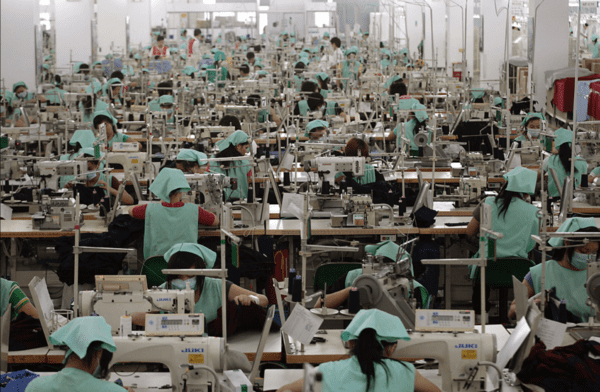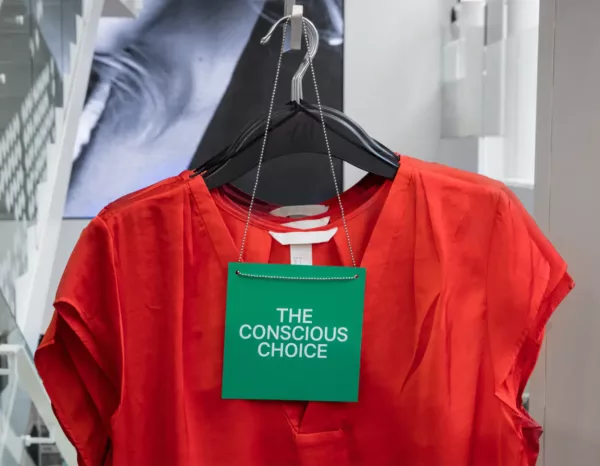Gen Z is most infamous for how politically correct they are. However, are they actually causing more harm than good in the economic market?
The weight of a consumer’s choice
In our modern age, every decision you make, every word you say, every move you take is a political act. As a consumer, the choices you make are ultimately a political statement on your ethics. The Ethical Consumer Organisation has a mission to alter the market through conscious shopping. As the organisation states on their website, “Every time we shop we’re voting with our wallet. When we buy from brands that have a positive impact it’s like voting for a better world.”

Fast fashion, the mass production of cheaply made clothing, has become more prominent over the last few years. Stores like Shein, Zara, H&M, Bershka, and Pull and Bear are among the most infamous in the market. However, Zara and Shein take the lead as their profits continue soaring. Shein has been involved in numerous scandals. Most recently, customers noticed concerning messages on labels of clothing that are believed to be workers seeking help. Fast fashion is a form of modern-day slavery, as labour workers endure gruesome working conditions for as long as 18 hours a day only to earn a few dollars.
How do consumers choose?
Various factors affect the final choices a consumer makes when purchasing a good. For instance, cost of living, propensity to save, and identity all contribute to the consumer’s final decision about buying the product. In more recent years, Gen-Z and Millennials have made an effort to raise awareness about unethical businesses and how certain markets exploit workers for economic gain. According to an article by National Cash Register (NCR) – a technology company ranked as top ten in Fintech – Gen Z is “ethnically and culturally diverse and better educated than previous generations.”
For instance, Gen Z popularised a more sustainable trend which is shopping at second-hand apparel stores. They turned thrifting into an ‘aesthetic’. On the other hand, it is also due to Gen Z and Millennials that certain micro-fashion trends became popular – through social media –, which lead to a higher consumption rate in the market. Thus, increasing the popularity of fast fashion stores previously mentioned. The height of this issue occurred during the pandemic when online shopping was made in bulk and practically the only activity to partake in for most.
Environmental Impact
Moreover, there are other consequences to fast fashion which harm the environment. The overconsumption and overproduction in the market lead to higher pollution rates due to the excess waste produced at factories, carbon footprint, water waste, and the unsustainable packaging. According to a study published by the University of Southern California, consumer trends shifted towards more eco-friendly options in 2022. However, the evidence lacks validity since companies are aware of what marketing strategies attract the young generations. Therefore, this raises the question: do eco-friendly options truly exist? With the rise of environmentally friendly movements, greenwashing tactics became more prominent amongst companies. Thus, they advertise themselves as environmentally friendly to capitalise on the eco-friendly consumers, when the reality says otherwise.

For example, H&M was sued in July of 2022 for their “Conscious Choice” line, which initially claimed to be clothing made of organic cotton and recycled polyester. The Swedish store used the Higg Index, which was developed by the Sustainable Apparel Coalition to demonstrate the stability rating of clothing. Unfortunately, that was insubstantial evidence to support H&M’s claims. The lawsuit revealed that the company tampered with numbers to appear more sustainable than it actually was. Therefore, marketing trends have become deceptive and schematic which maims the relationship between companies and their consumers.
Final thoughts
Ultimately, the younger generation’s impact on market trends over the past few years has benefited the environment to some extent while simultaneously magnifying the issue. Gen-Z is a politically conscious generation whose heart and mind are in the right place. However, the social media trends that led to the indulgence in and mass consumption of unethical fashion took control of the situation. Companies exacerbated the issue of unethical consumerism by using deceptive marketing strategies to greenwash consumers. Many, if not most, large corporations that are profit-oriented pose a threat not only to the environment but to humanity since they have poor working conditions for labour unions who earn an amount below minimum wage.
Consequently, there is a need for stronger regulation on corporations who play an instrumental role in the ethics of the market. Similarly, there is a need for consumers to be more mindful of their consumption of unnecessary goods. That being said, this article does not purport to point fingers at anyone, otherwise I would be pointing at a mirror.






